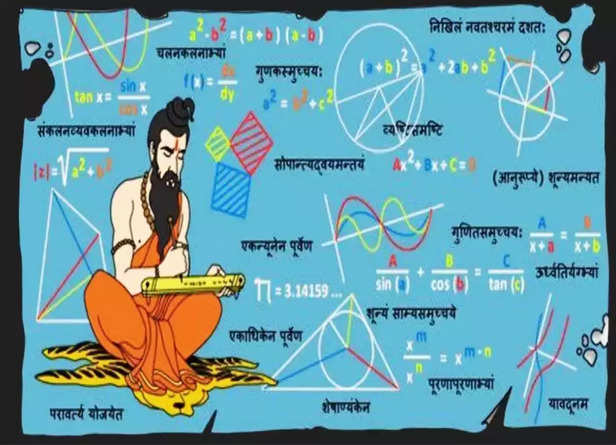Vedic Wisdom: How Vedic Texts Predicted Today’s World
Nidhi | Jan 07, 2025, 23:37 IST
( Image credit : Timeslife )
The article explores the profound wisdom found in the ancient Indian Vedic texts, revealing how these scriptures were far ahead of their time in predicting modern science, medicine, philosophy, and environmental sustainability. From astronomical discoveries to medical innovations and ecological wisdom, the Vedas contain timeless knowledge that continues to resonate with contemporary understanding, offering invaluable insights into the interconnectedness of life and the universe.
What if the answers to some of today’s most pressing questions—about health, the universe, and our place within it—were already known thousands of years ago? The Vedas, India’s ancient sacred texts, hold timeless insights that continue to astound scholars and thinkers. These texts, composed between 1500 BCE and 500 BCE, offer profound knowledge about science, medicine, philosophy, and the environment—proving they were far ahead of their time.

The Vedas, often considered humanity’s oldest surviving texts, are far more than a cultural or spiritual heritage. They are a testament to the advanced thinking of ancient Indian sages, whose knowledge anticipated modern scientific and philosophical discoveries by millennia. From understanding the cosmos to pioneering medicine and advocating sustainability, these texts offer timeless wisdom that continues to
How the Vedas Were Ahead of Their Time
Understanding the Cosmos and Astronomy
- The Rigveda contains references to the motion of celestial bodies and describes the cyclical nature of time (yugas), resembling modern cosmological principles.
- Concepts like the heliocentric system—where the Sun is at the center of the solar system—are hinted at in the Vedas long before Copernicus formalized this idea.
- Eclipses and planetary motions were detailed with astonishing accuracy, showcasing early advancements in observational astronomy.
Mathematical Mastery

Ancient Maths
( Image credit : Timeslife )
- The Sulba Sutras, associated with the Vedas, demonstrate advanced knowledge of geometry, including concepts akin to the Pythagorean theorem.
- The use of large numbers and sophisticated calculations in Vedic rituals indicates an early understanding of arithmetic and algebra.
- Binary numbers, which are fundamental to modern computing, find their roots in Vedic literature.
Roots of Modern Medicine
- The Atharvaveda, often referred to as the foundation of Ayurveda, provides detailed information on herbal remedies, dietary practices, and disease prevention.
- The Charaka Samhita and Sushruta Samhita, which draw from Vedic knowledge, describe advanced surgical procedures like cataract removal, cesarean delivery, and even plastic surgery (rhinoplasty).
- These texts emphasize holistic health, combining physical, mental, and environmental well-being—a principle gaining traction in contemporary integrative medicine.
Ecological Wisdom
- The Vedas emphasize the sanctity of nature, personifying natural elements like fire (Agni), water (Varuna), and wind (Vayu) as deities.
- Sustainability was deeply ingrained in Vedic practices, with instructions for water conservation, ethical treatment of animals, and sustainable agriculture.
- These ecological principles resonate with today’s environmental movements, offering timeless solutions to modern ecological crises.
Philosophy and Human Consciousness
- The Vedas delve into profound philosophical ideas, particularly through the Upanishads. Concepts like Brahman (universal consciousness) and Atman (individual soul) highlight the interconnectedness of all existence.
- The non-dualistic philosophy expressed in the phrase “Tat Tvam Asi” (You are That) aligns with modern ideas of mindfulness and self-awareness.
- Practices like yoga and meditation, rooted in Vedic wisdom, are now globally recognized for their transformative impact on mental health and well-being.
Understanding Cycles of Time and Karma
- The Vedic concept of time as cyclical rather than linear challenges conventional thinking and aligns with modern theories of quantum physics.
- Karma, a central theme in the Vedas, reflects the cause-and-effect principle, a concept now mirrored in disciplines like behavioral psychology and even physics.
